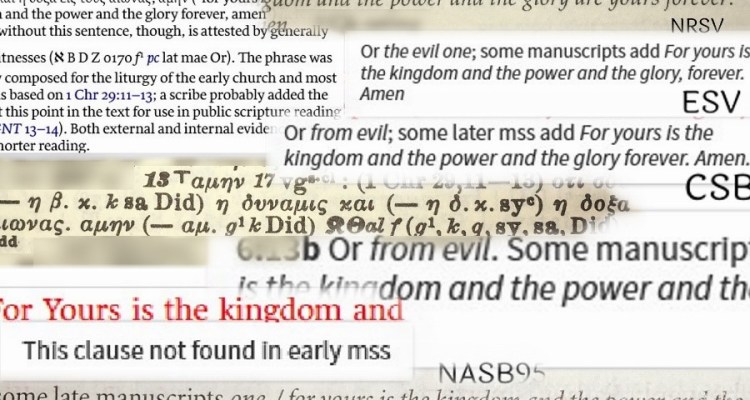Have you ever looked at the footnotes in a Bible and seen an alternate wording? Perhaps a note that starts with "some manuscripts add....", "Other ancient authorities add" or even "This clause not found in early mss"? For example, the last verse of the Lord's Prayer can be written several ways:
- And lead us not into temptation, but deliver us from evil. (Matthew 6:13 ESV)
- And lead us not into temptation, but deliver us from the evil...

